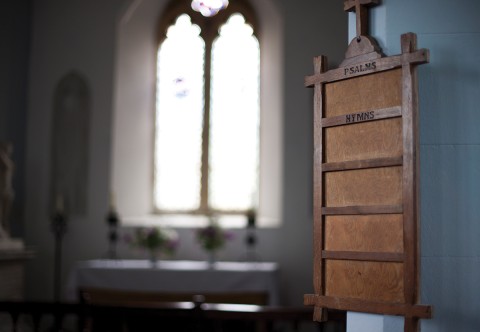The pandemic calls for closed hymnals
Forgoing congregational singing as a spiritual discipline

Singing is my body’s prayer. I don’t do yoga. I don’t dance before the Lord. I don’t lift my hands in praise during worship. I do, however, raise my voice in song, and it takes every cell of my body. I sing during worship. I sing with all I’ve got.
Paul encourages us to present our bodies as a living sacrifice to God. I do that with a song on my lips.
Which is why it’s hard for me to imagine worship without singing. But studies are suggesting that singing might expel more virus-laden particles into the air than breathing and speaking. So churches that want to be safe when they regather after quarantine are doing the unthinkable: banning corporate song.





